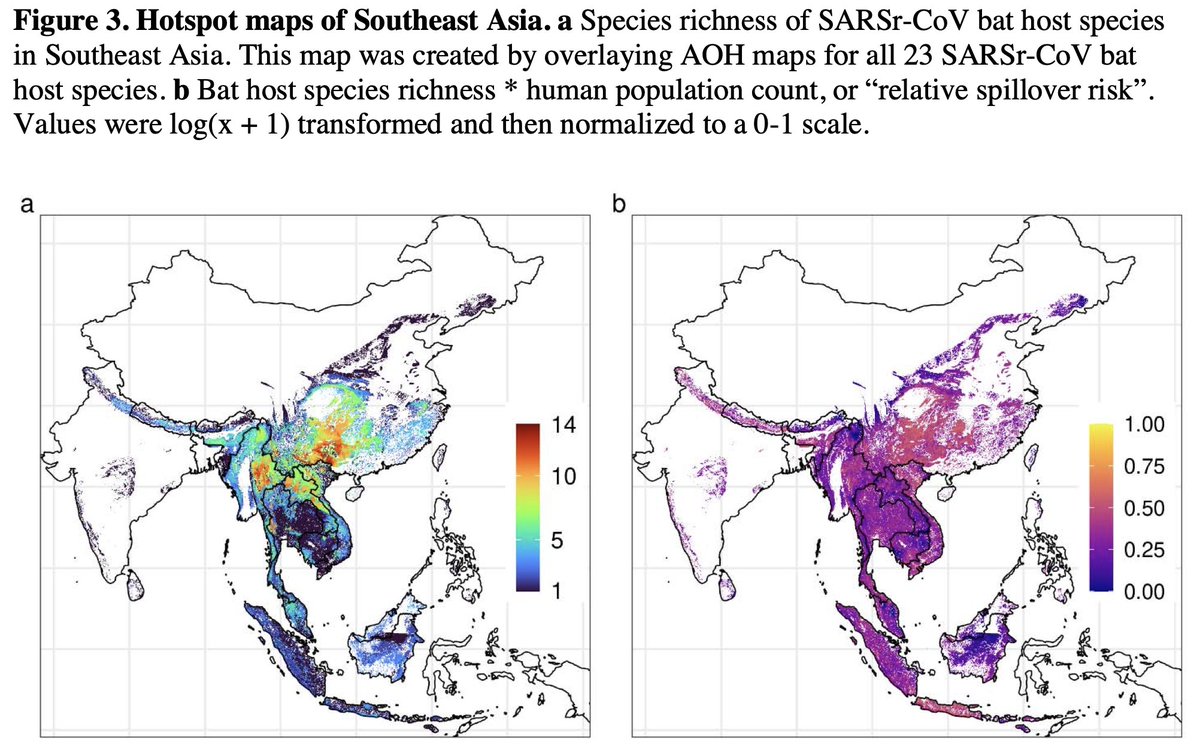
Okay, I promised a thread on my #sarscov2 evolution story, but it’s really late here, so a few general points on how to think about its evolution to come and then more tomorrow.
Full story is here: sciencemag.org/news/2021/08/n…
Full story is here: sciencemag.org/news/2021/08/n…
1. Evolution is hard to understand.
Yes, the basic idea is so beautiful and simple a child can understand it.
But when you get to the details of what happens in the real world it can get really, really complex. That means you should be wary of anyone telling you it’s “obvious”.
Yes, the basic idea is so beautiful and simple a child can understand it.
But when you get to the details of what happens in the real world it can get really, really complex. That means you should be wary of anyone telling you it’s “obvious”.
Take virulence: There is this popular idea that viruses tend to become less dangerous over time, because it is not in the interest of the virus to kill its host.
That may sound reasonable at first glance, but things are a lot more complicated.
That may sound reasonable at first glance, but things are a lot more complicated.
For one, it’s not about what's in the long-term interest of a viral species. It’s about what particular virus wins out now.
(Destroying Earth is not in humans' interest but the interests of billions of individuals have led us a long way towards it - and we have a brain to think!)
(Destroying Earth is not in humans' interest but the interests of billions of individuals have led us a long way towards it - and we have a brain to think!)
In some instances killing the host can help a virus spread.
Rabbit hemorrhagic disease virus was released in Australia in 1996. It got more deadly over time, probably because the virus is spread by blow flies feeding on rabbit carcasses.
Rabbit hemorrhagic disease virus was released in Australia in 1996. It got more deadly over time, probably because the virus is spread by blow flies feeding on rabbit carcasses.
In other instances it simply may not matter. For instance, if disease develops and death comes long after the time when an infected individual has passed the virus on.
Or a virus becomes more dangerous because the trait that makes it cause more disease also makes it better able to compete with other versions of the same virus in the same host.
(The argument has been made that polio virus infecting nervous tissue from which it won’t be transmitted - it’s transmitted by fecal-oral route - is an example of this kind of "short-sighted evolution".
See here: wwwnc.cdc.gov/eid/article/2/…)
See here: wwwnc.cdc.gov/eid/article/2/…)
So how the virulence of a given virus evolves over time really depends on a lot of factors, some of which are very hard to know.
“The evolution of virulence has proven to be quicksand for evolutionary biologists,” @edwardcholmes told me. “It’s not a simple thing.”
“The evolution of virulence has proven to be quicksand for evolutionary biologists,” @edwardcholmes told me. “It’s not a simple thing.”
@edwardcholmes 2. Evolution is even harder to predict.
This is in part because there is an element of chance: the random mutations. “It’s very, very tricky to know what’s possible, until it happens”, Andrew Read told me. “It’s not physics. It doesn’t happen on a billiard table."
This is in part because there is an element of chance: the random mutations. “It’s very, very tricky to know what’s possible, until it happens”, Andrew Read told me. “It’s not physics. It doesn’t happen on a billiard table."
@edwardcholmes Think of an island to which a new predator is introduced. Other animals need to adapt. Some may learn to camouflage, some may develop sharp teeth or burrow into the ground or learn to fly. But what species ends up taking what path depends in part on chance.
@edwardcholmes Thinks of evolutionary biology as more of a historical science, Read told me. “We're much better at explaining the past, than predicting the future”.
@edwardcholmes 3. Evolution is a numbers game.
Some evolutionary scenarios may be really unlikely, like winning a lottery.
But if you buy enough lottery tickets (like A LOT) your chances of winning become pretty good.
The same goes for the virus.
Some evolutionary scenarios may be really unlikely, like winning a lottery.
But if you buy enough lottery tickets (like A LOT) your chances of winning become pretty good.
The same goes for the virus.
@edwardcholmes That’s why reducing infections is so important.
Some dangerous variants may only be possible if the virus hits on a very rare, winning combination of mutations, Eugene Koonin told me. “But with all these millions of infected people, it may very well find that combination.”
Some dangerous variants may only be possible if the virus hits on a very rare, winning combination of mutations, Eugene Koonin told me. “But with all these millions of infected people, it may very well find that combination.”
@edwardcholmes I’ll leave it at this and get into #sarscov2 tomorrow
• • •
Missing some Tweet in this thread? You can try to
force a refresh





